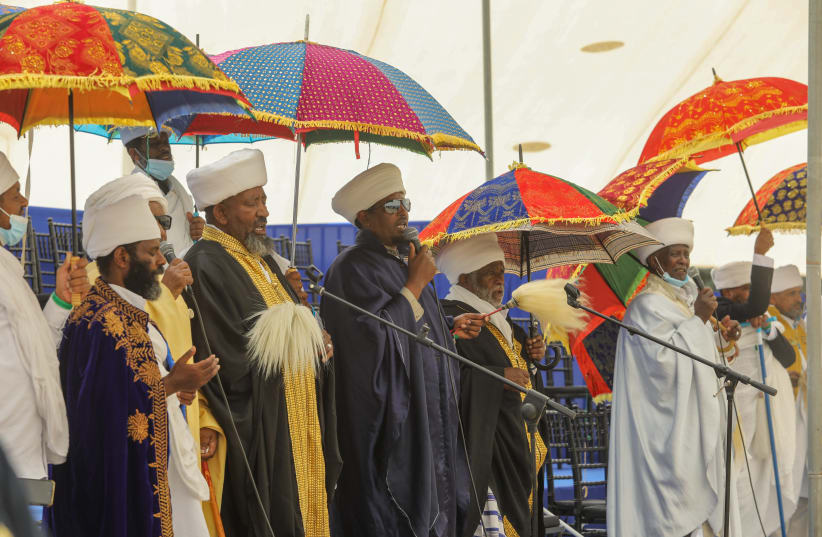The memorial ceremony is held to remember the mass aliyah that took place in the 1980s when thousands of Jews left their villages in Ethiopia and made a perilous journey through Sudan to reach the State of Israel. The operation was facilitated by the Mossad and represented a miraculous ingathering of Jews who came to Israel after generations of dreaming about seeing the Land of Israel and Jerusalem.
Tragically, thousands died in Sudan. Of the estimated 4,000 who died, around 1,500 have been named and inscribed at the memorial. When the Knesset approved the memorial day for the fallen it noted the difficult conditions Jews faced in Sudan.
“Their instructions on minimizing their Jewish identity made it difficult for them to observe Jewish law and tradition; they could not bury their dead in the desert for fear of robbers, and they could not perform Jewish burial ceremonies at their camps for fear of the Sudanese guards.”
Operation Moses, as the 1984 mass aliyah became known, has become a symbol of the bravery of Jewish people and also of the overall miracle that is modern Israel. After 8,000 Jews came in 1984, another 14,324 were brought within 36 hours during Operation Solomon in 1991. In 2003, the memorial was established on Mount Herzl. Every year, thousands come and high-level politicians pay their respects and honor the community.
This year, due to ongoing health regulations, only 3,000 were permitted to attend the ceremony. This is in stark contrast to the fact that the government openly permits tens of thousands of people to gather at other events throughout the country.
The memorial this year comes six years after mass protests by Jews of Ethiopian origin against racism in Israeli society. The protests drew attention to a long list of practices across the government and in institutions in Israel where Ethiopian Jews faced barriers and discrimination.
Operating on a unique multi-year plan, the government has sought to address these concerns. Strides have been made to help young Ethiopian Jews obtain housing and to ensure that they are excelling in education. In addition, more help is offered to encourage Ethiopian Jews to reach the highest academic levels while creating more employment opportunities and addressing the high levels of incarceration Jews from Ethiopia face in the IDF.
Much work remains to be done. For instance, there have been ongoing controversies about police brutality. In 2019, Solomon Tekah was shot and killed by an off-duty policeman, leading to protests. This brings parallels to police shootings in the United States.
The question is whether authorities have internalized the harm and shock of the killing of Tekah and whether incidents like this will not happen in the future.
Sadly, the Tekah killing was not the only incident when racism reared its ugly head.
Why is Avera Mengistu still held in Gaza? While Israel worked hard to get back other Israelis held by Hamas terrorists, Mengistu seems to have been abandoned. His case was similar to the Israeli woman who crossed into Syria in March 2021 – however she was brought back immediately by Israel through a special deal with Russia. Why was she a priority and not Mengistu? It is hard not to wonder if her skin color and perhaps connections to certain religious communities in Israel were the reason.
Israeli society wants to value everyone and provide Ethiopian Jews equal opportunity. But incidents like those with Tekah and Mengistu continue to show a mixed story. The message of the memorial on Mount Herzl is that we are all together in the struggle for a better Israel and a united community, while we honor the fallen from different regions of the world and different Jewish communities.
